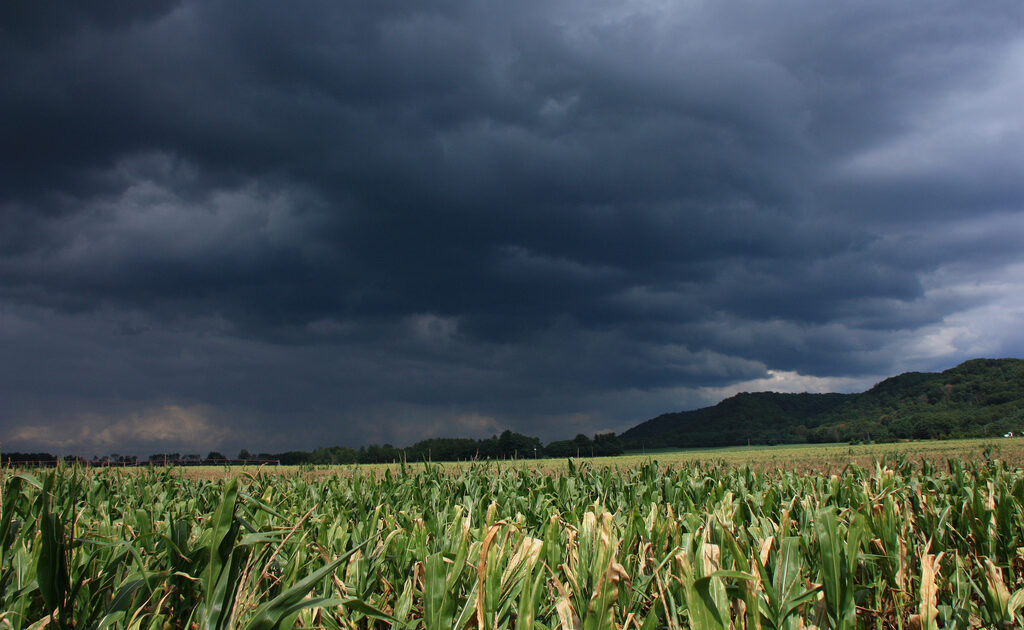Climate Change Report Predicts ‘Extreme Weather Events’ to Cause Major Food Shortages

The 840-page climate change report released earlier this week by the White House reads like an end times sci-fi screenplay: predictions of soon-to-come scorching heat waves and droughts, calamitous flooding, and unstoppable wildfires beyond what we’re already seeing on a regular basis.
Changes in global temperatures is no longer debatable, the report notes:
U.S. average temperature has increased by 1.3°F to 1.9°F since 1895, and most of this increase has occurred since 1970. The most recent decade was the nation’s and the world’s hottest on record, and 2012 was the hottest year on record in the continental United States. … Temperatures are projected to rise another 2°F to 4°F in most areas of the United States over the next few decades.
Hotter temperatures, more frequent droughts (all of California is in a drought situation presently) and longer rain periods and flooding, will hit farmers and ranchers hardest, which could drive food prices higher, the report explains:
The United States produces nearly $330 billion per year in agricultural commodities. This productivity is vulnerable to direct impacts on crops and livestock from changing climate conditions and extreme weather events and indirect impacts through increasing pressures from pests and pathogens. Climate change will also alter the stability of food supplies and create new food security challenges for the United States as the world seeks to feed nine billion people by 2050.
According to the climate change report, many agricultural regions “will experience declines in crop and livestock production,” as a result of the environmental stresses now being felt. And how we go about preventing further impact–and even reversing the situation–is not going to be simple, but it’s urgent nonethelss, as author and activist Bill McKibben told NPR’s “All Things Considered.” One of the biggest problems is that people see themselves as “very small,” too small in the face of the largest problem humans have ever faced, he said. “And so, the sense that any of us might be able to affect it seems tiny, that we move on to the things that we can do something about and try to put it out of our heads.”
According to McKibben, we’re now at a point though in the climate change crisis where that perception is changing: “[W]hen the New York City subway system fills with salt water, when the Lower East Side turns into a branch of the East River, it looked like something out of a Hollywood movie. Except that it also looked like something straight out of all the scientific reports. And this now is happening someplace around the world almost everyday,” he told NPR’s Robert Siegel. “Look, climate chaos is what’s coming at us. Call it what you will, it’s the biggest thing that we’ve ever faced, and now we’re facing it head-on, we can see it. And the question is whether we’ll blink or whether we will rise up as people have in crises before and come together as we must act.”
Find Jill on Twitter @jillettinger
Resource: http://nca2014.globalchange.gov/highlights/report-findings/agriculture#statement-16367
Related on Organic Authority
Monsanto Invests $930M In Climate Change Preparedness
Bye-Bye Dollar Menu: Food Prices to Rise by 40 Percent Thanks to Climate Change
Someone’s Going to Punch You for that Big Mac: Global Warming to Create ‘Food Battles’
Image: mjlmadison

